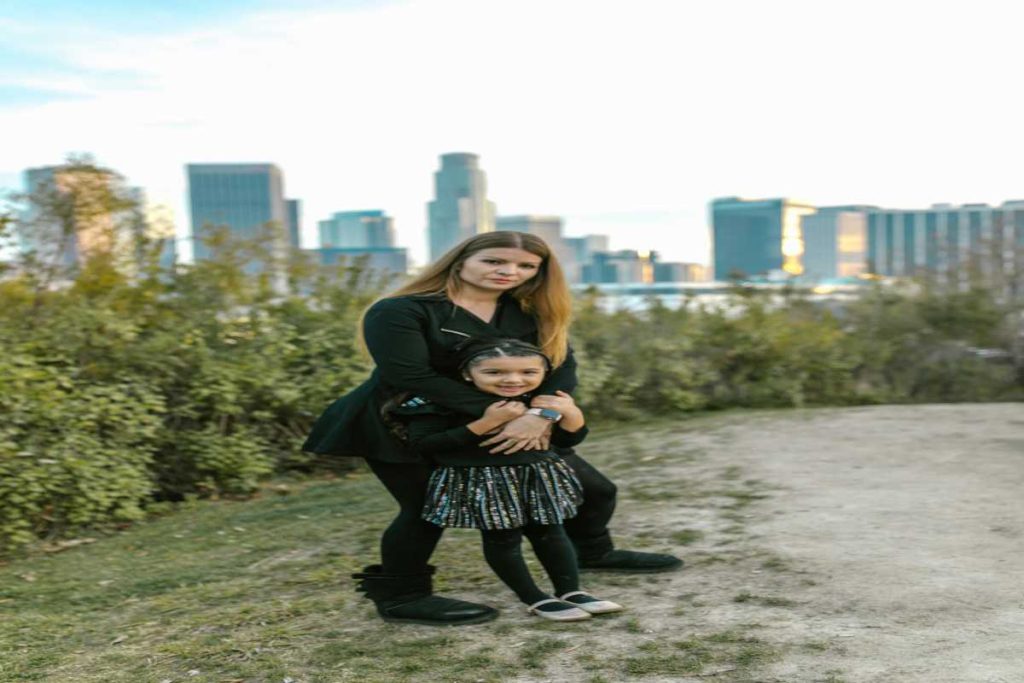Motherhood is a transformative experience filled with joy, challenges, and growth. However, for some mothers, the journey can be complicated by the echoes of past trauma. Intergenerational trauma refers to the transmission of trauma across generations, where the experiences of one generation affect the emotional, psychological, and even physical well-being of future generations. When it comes to motherhood, this cycle can have profound effects on the way a mother relates to her children, influences their upbringing, and even shapes her own identity as a parent.
Understanding intergenerational trauma in the context of motherhood is essential for breaking the cycle of pain and fostering a healthier environment for the next generation. In this blog, we’ll explore what intergenerational trauma is, how it impacts mothers, and how you can begin to heal and break free from its cycle.

What is Intergenerational Trauma?
Intergenerational trauma is the transmission of trauma from one generation to the next, often unconsciously. It occurs when the emotional and psychological effects of trauma experienced by a parent, grandparent, or earlier generation are passed down to their descendants. This can manifest in various ways—emotional dysregulation, unhealthy coping mechanisms, attachment issues, and even physical health problems.
For example, a mother who grew up in an abusive or neglectful environment may unknowingly carry emotional scars from her childhood. These unresolved wounds can influence how she interacts with her children, affecting her parenting style, emotional availability, and ability to provide a secure attachment. Over time, this can create a pattern that perpetuates the cycle of trauma through generations.
How Intergenerational Trauma Affects Motherhood
Intergenerational trauma can impact motherhood in several ways. Here are a few key areas where the effects are often most evident:
1. Emotional Responses and Parenting Style
Mothers who have experienced trauma may find themselves more reactive to their children’s behaviors. For example, they may struggle with regulating their own emotions, leading to outbursts, anxiety, or difficulty in providing consistent emotional support to their children. This emotional volatility can result in inconsistent parenting, which may create feelings of insecurity in children.
- Example: A mother who grew up in an emotionally unpredictable environment may unintentionally replicate that dynamic by becoming overly critical, angry, or withdrawn when her child misbehaves. This can contribute to a child feeling unsafe or unloved.
2. Attachment Issues
Attachment theory suggests that the bond between a mother and her child is crucial for healthy emotional development. For mothers affected by intergenerational trauma, forming a secure attachment can be difficult. The trauma they’ve experienced may lead to fears of abandonment, rejection, or not being good enough, which can interfere with their ability to form strong, nurturing connections with their children.
- Example: A mother who was neglected as a child might have difficulty trusting herself or others as a parent, making it hard for her to bond with her own children or provide consistent emotional support.
3. Unconscious Parenting Patterns
Parents often unconsciously replicate the parenting behaviors they experienced as children, even if those behaviors were harmful. For instance, a mother who was raised in a household where emotional expression was discouraged may find it challenging to openly express love or affection toward her own children.
- Example: A mother who was raised in a strict, authoritarian household may unconsciously parent with similar rigidity, despite her desire to offer a more nurturing and gentle approach.
Breaking the Cycle: How to Heal from Intergenerational Trauma
While the impact of intergenerational trauma can feel overwhelming, it’s possible to heal and break the cycle for future generations. Here are a few ways mothers can begin to heal from intergenerational trauma:

1. Acknowledge the Past and Its Impact
The first step toward healing is acknowledging the presence of intergenerational trauma and understanding how it has affected you. By recognizing the patterns and emotional wounds passed down from previous generations, you can begin to understand how they are influencing your motherhood. This self-awareness is crucial for breaking the cycle.
- Tip: Consider seeking therapy or counseling to explore your family history and how past trauma has shaped your life and parenting. Understanding your emotional triggers can help you gain control over your responses and emotions.
2. Practice Self-Compassion
Healing from trauma requires patience and kindness toward yourself. As a mother, you may often feel guilt or shame for repeating behaviors or struggling with emotional challenges. It’s important to practice self-compassion and recognize that healing is a process. You are not doomed to repeat the mistakes of the past, and it’s okay to ask for help along the way.
- Tip: Treat yourself with the same compassion you would offer a close friend. Acknowledge your struggles without judgment and understand that your efforts to heal will benefit both you and your children.
3. Develop Healthy Coping Mechanisms
One of the key aspects of breaking the cycle of trauma is developing healthy coping strategies for dealing with stress and difficult emotions. Instead of resorting to harmful behaviors like anger, withdrawal, or emotional neglect, learning healthy ways to cope can empower you to respond more thoughtfully and calmly.
- Tip: Consider incorporating mindfulness practices, such as meditation, journaling, or deep breathing exercises, to help regulate your emotions. Building a toolbox of positive coping strategies will help you manage challenging moments in a healthier way.
4. Build a Support System
Healing from intergenerational trauma can be isolating, but you don’t have to do it alone. Building a strong support system of friends, family, or therapists can provide emotional relief and encouragement. Surrounding yourself with people who understand your experiences can help you feel less isolated and more empowered in your healing journey.
- Tip: Reach out to a trusted friend or family member when you need support. Finding a therapist who specializes in trauma can also be incredibly helpful in guiding you through the healing process.
5. Create New Family Traditions
As you work to break the cycle of intergenerational trauma, create new, positive family traditions that promote healthy emotional connection and secure attachment. These traditions can help establish a nurturing, loving environment for your children and demonstrate that you are actively choosing to parent differently.
- Tip: Make time for bonding activities like family dinners, game nights, or regular one-on-one time with your children. These experiences help reinforce positive connections and provide a stable foundation for your family.
Conclusion
Intergenerational trauma can have a profound impact on motherhood, but it doesn’t have to define your parenting or your life. By acknowledging the past, practicing self-compassion, and learning healthier coping strategies, you can break the cycle and create a positive, nurturing environment for your children. Healing takes time, and it’s important to be patient with yourself along the way.
As you continue on your healing journey, remember that you are not alone. Seeking support, building new traditions, and embracing change are powerful steps toward breaking the cycle of trauma and ensuring that the next generation grows up in a healthier, more supportive environment. With awareness and intention, you can heal and offer your children the love and stability they deserve.
